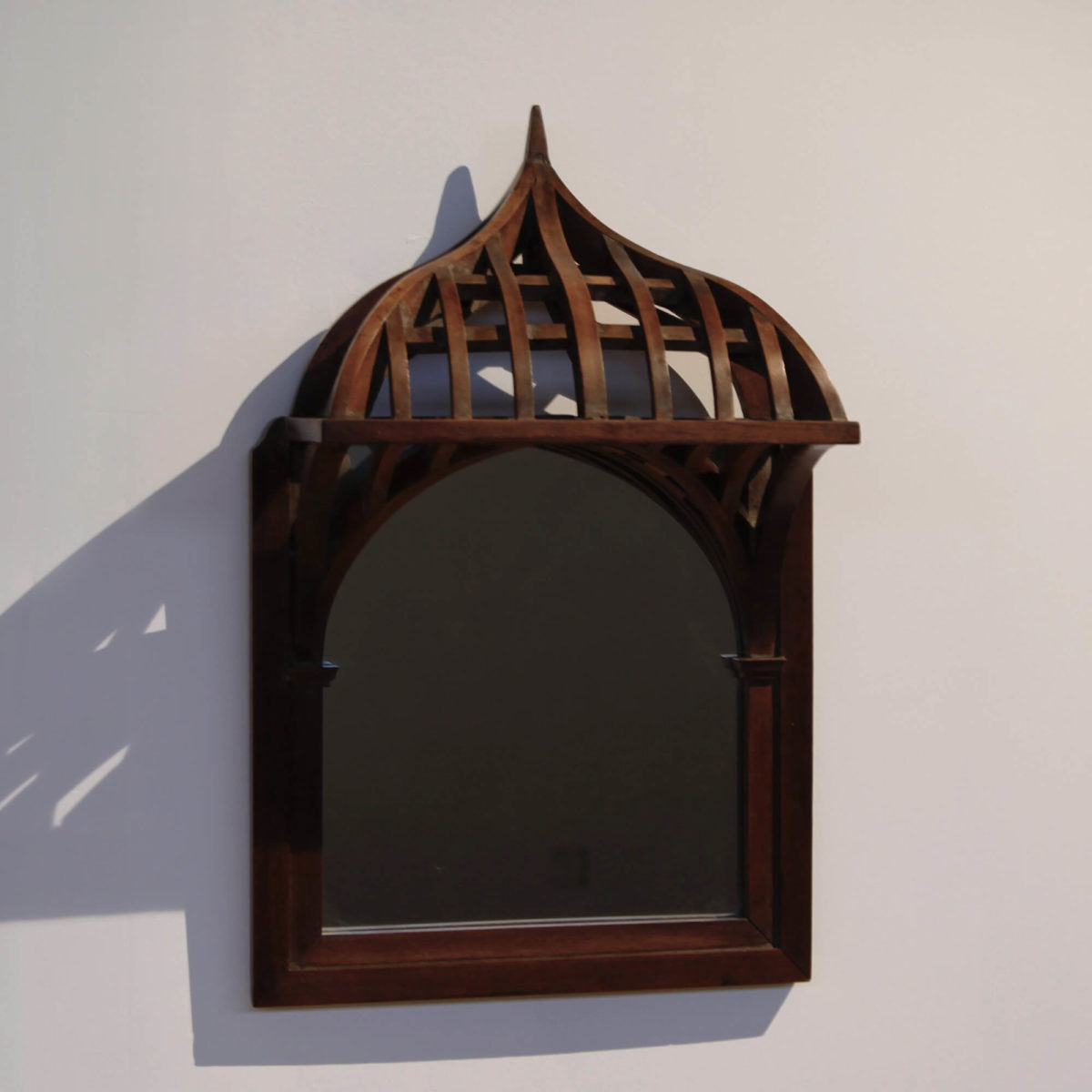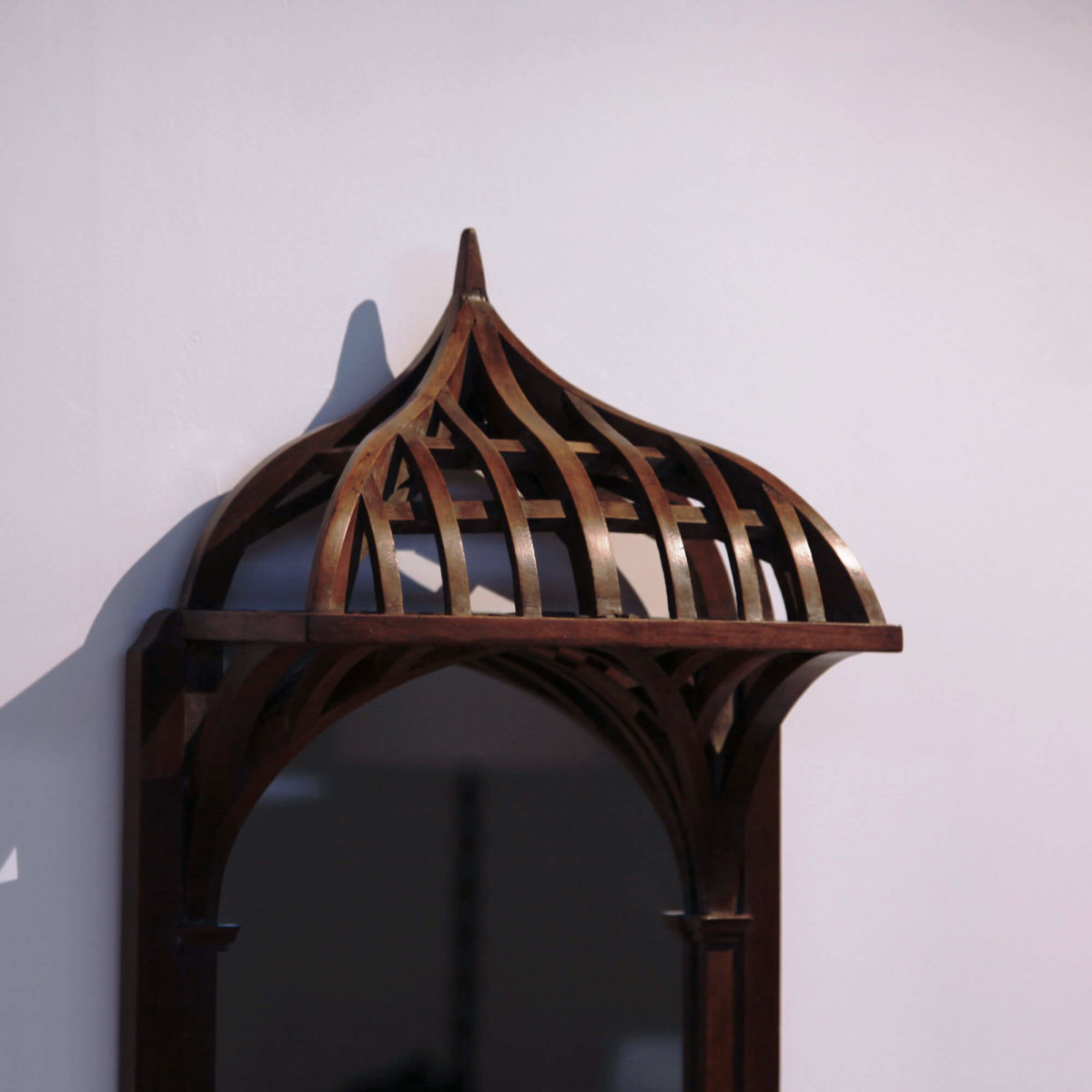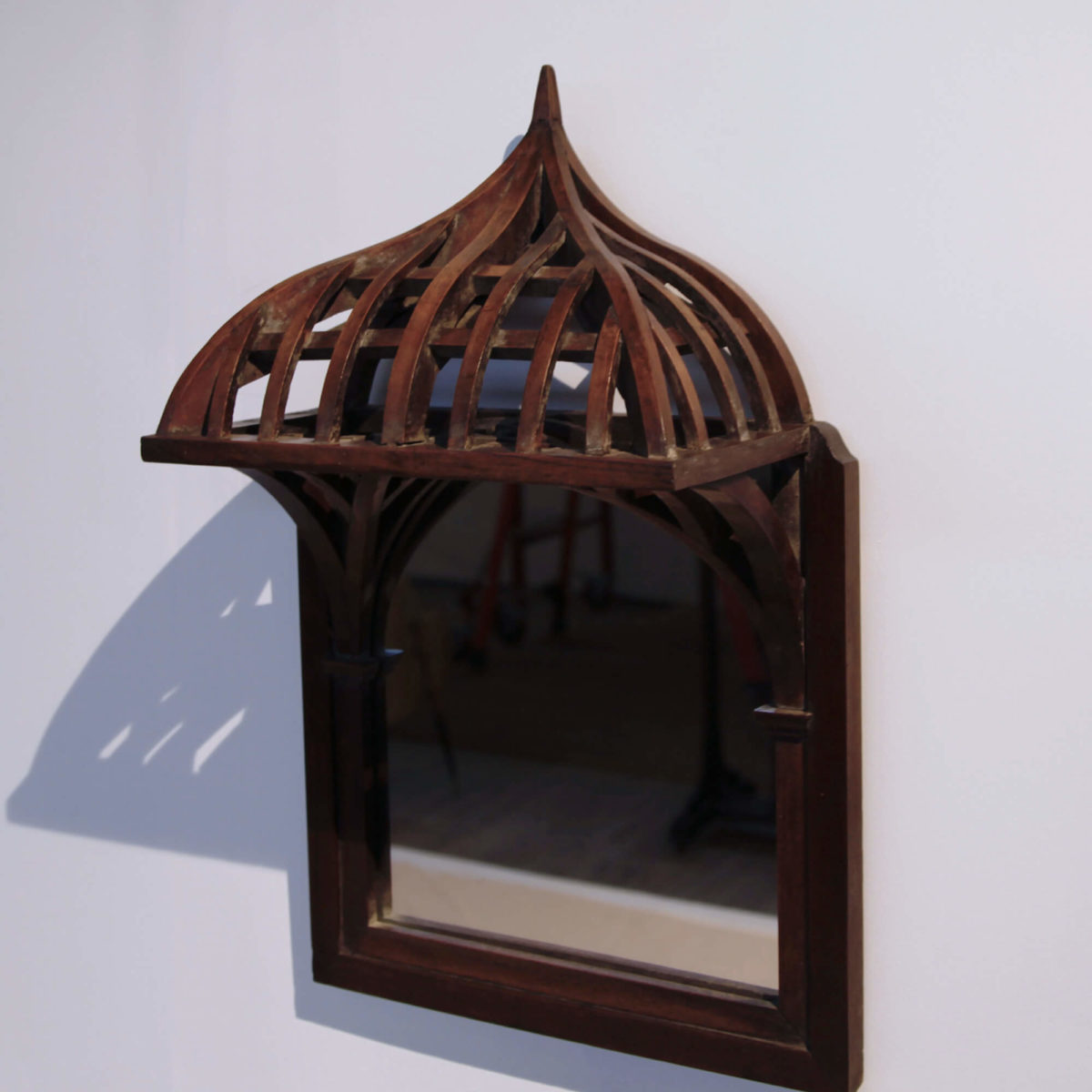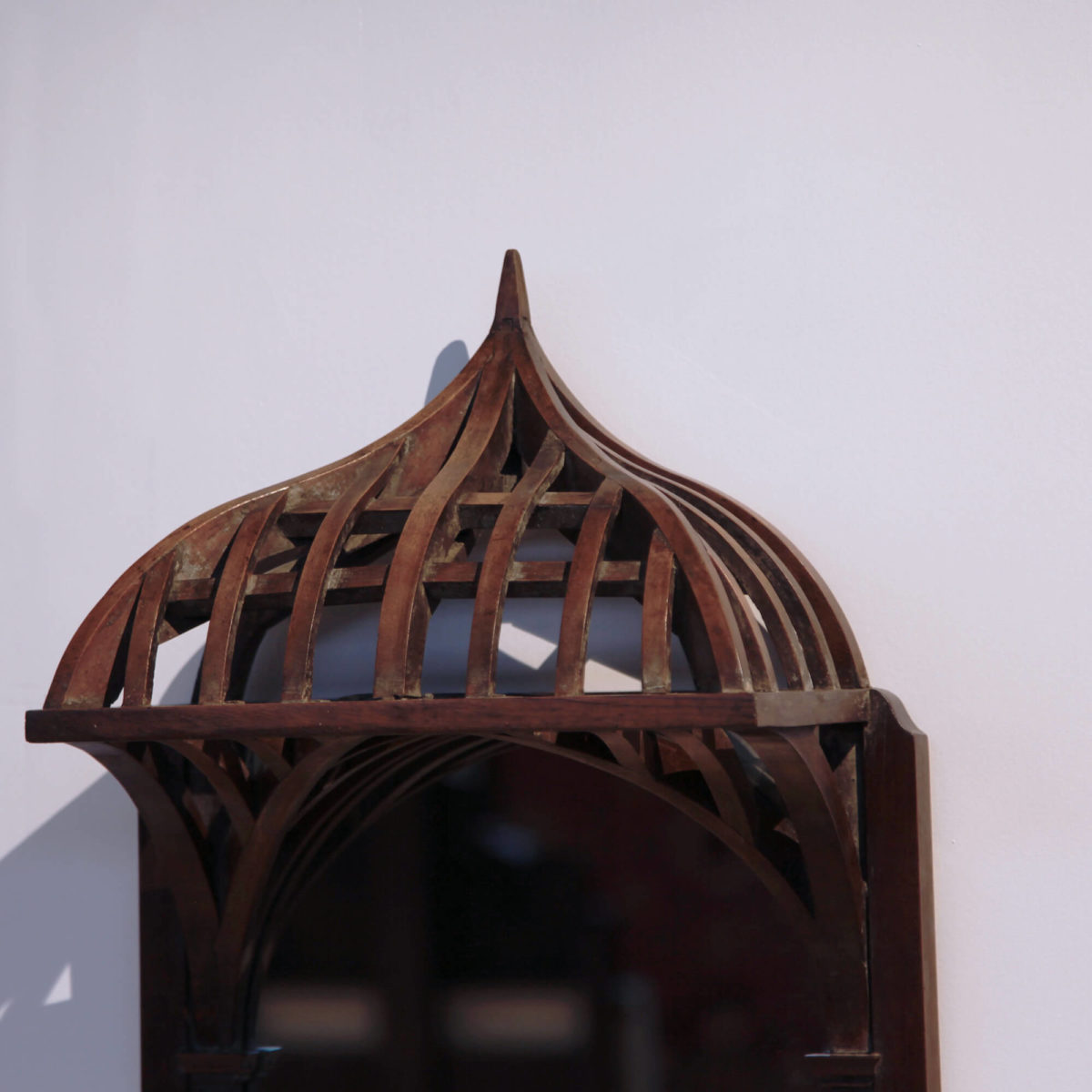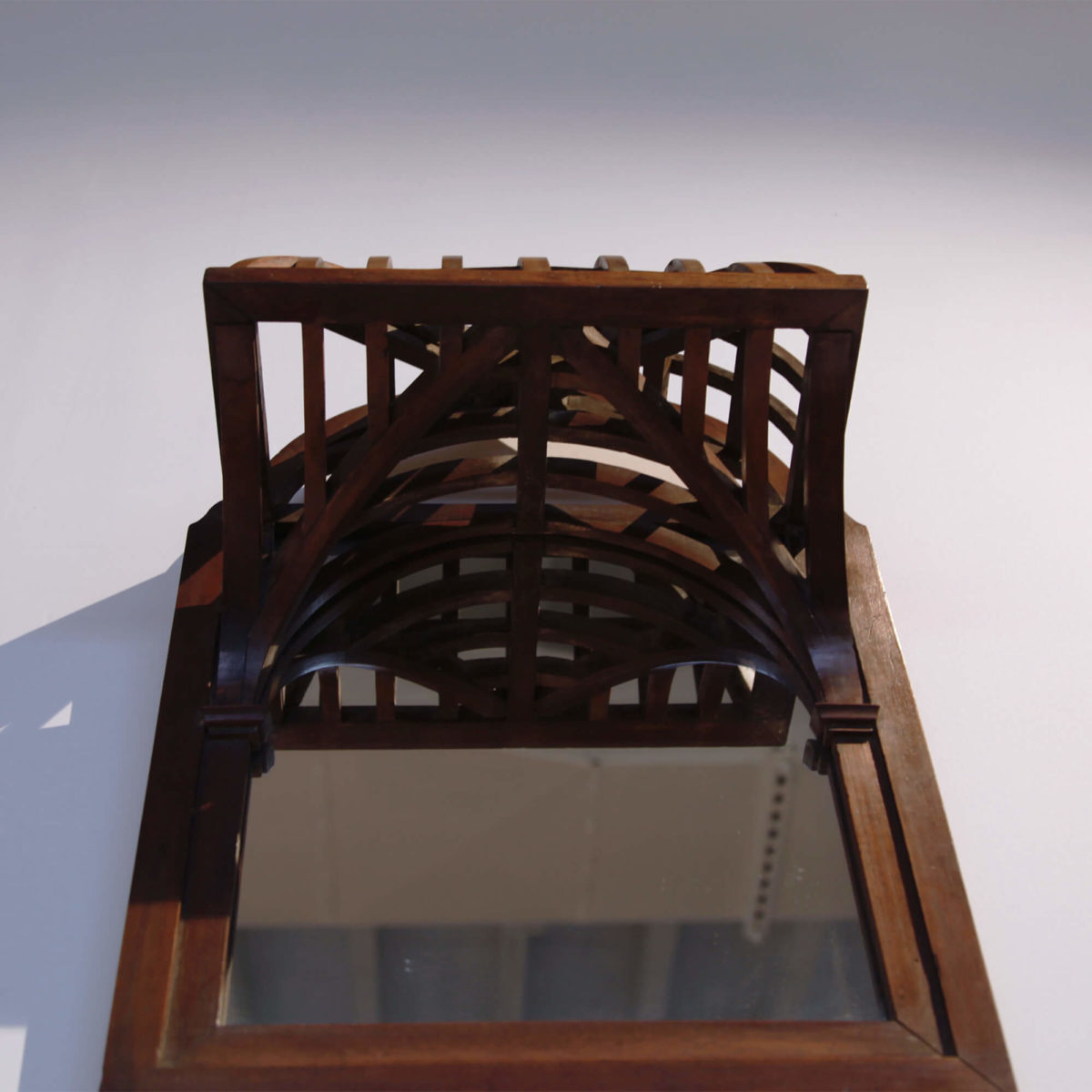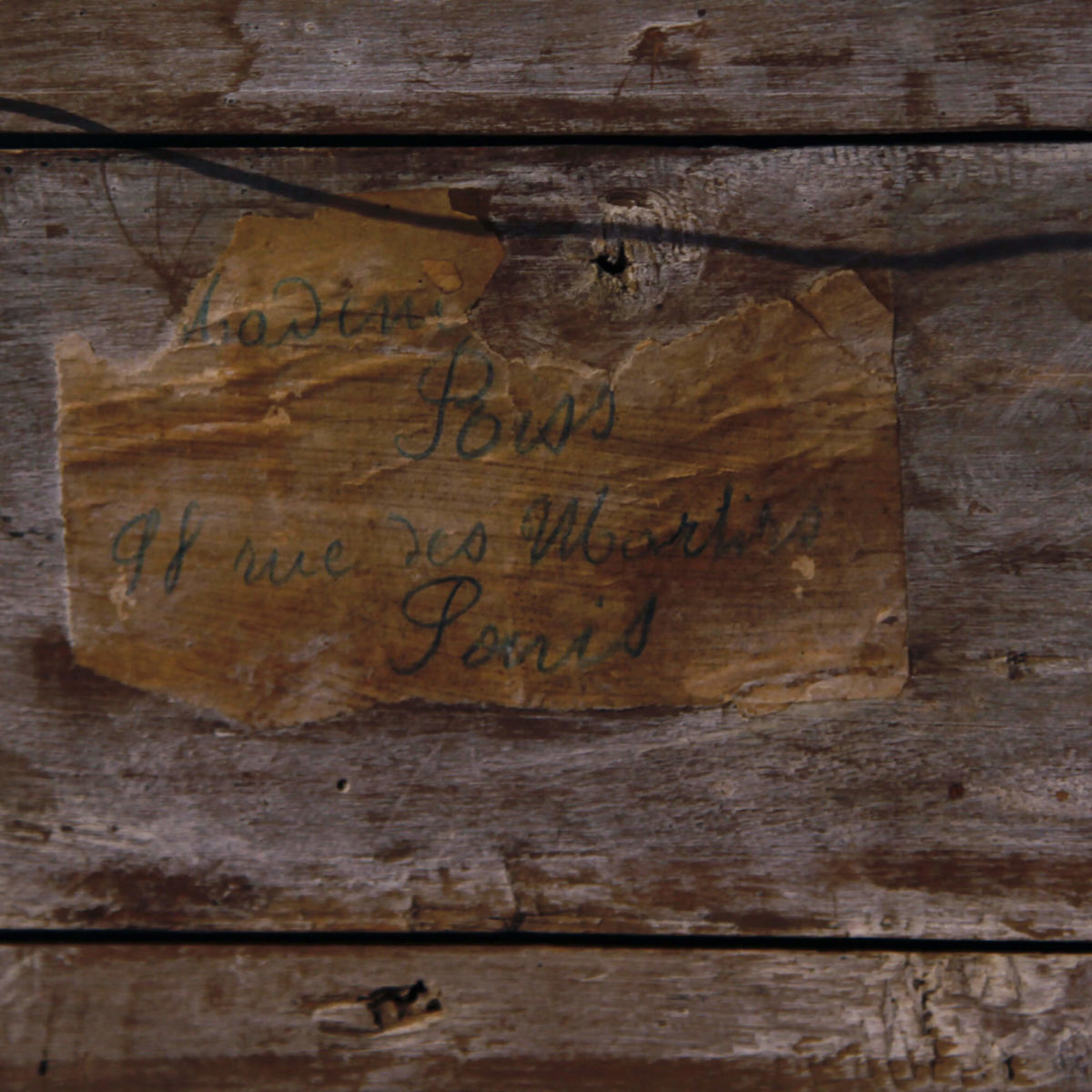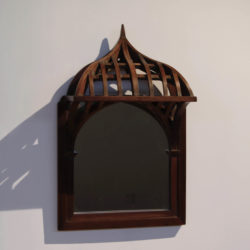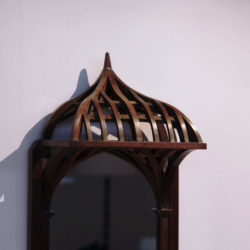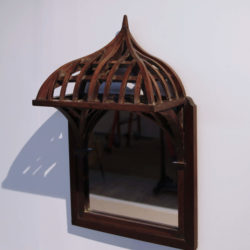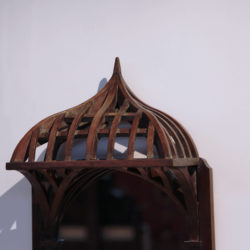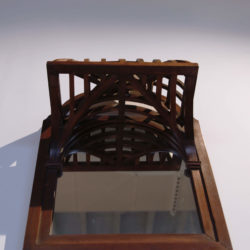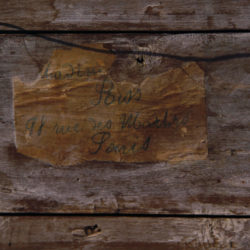19th century French Architectural Model Mounted on Mirror
FRANCE
19th century
Walnut, glass
21″ high x 13 3/4″ wide x 6 1/4″ deep
An elegant example of compagnonnage, the French tradition in which a future builder, after several years of apprenticeship with a master, completes a tour de France (or sometimes, as is often the case with woodworkers, of Germany) to pursue further expertise and knowledge of the craft. At the end of each stop on this tour the apprentice completes a work reflecting his skill level.
Typically, these were collected by antiquarians, architects and historians of architecture and design. Works of compagnonnage were brought into the spotlight by Bill Blass, who collected beautiful model staircases and whose home was much admired.
The Cooper-Hewitt Museum hosted an exhibition of masterful examples, and further illuminated the process of apprenticeship: “Compagnonnage, meaning “group of companions,” is a type of design practice that combined formal study with practical training from masters. Apprentices honed their skills in a workshop during the day, taking courses in the art of geometrical drawing and design in the evening, living together in a boarding house. First, concepts were taught, then the handiwork, both of which became increasingly sophisticated…At each stage of the learning process (acceptance, reception, mastership), apprentices created models, leading them to become masters of their craft and design.”
This architectural model, mounted on a framed mirror, casts wonderfully geometric shadows on the wall.


